How to Clean an Engagement Ring
How to Clean an Engagement Ring
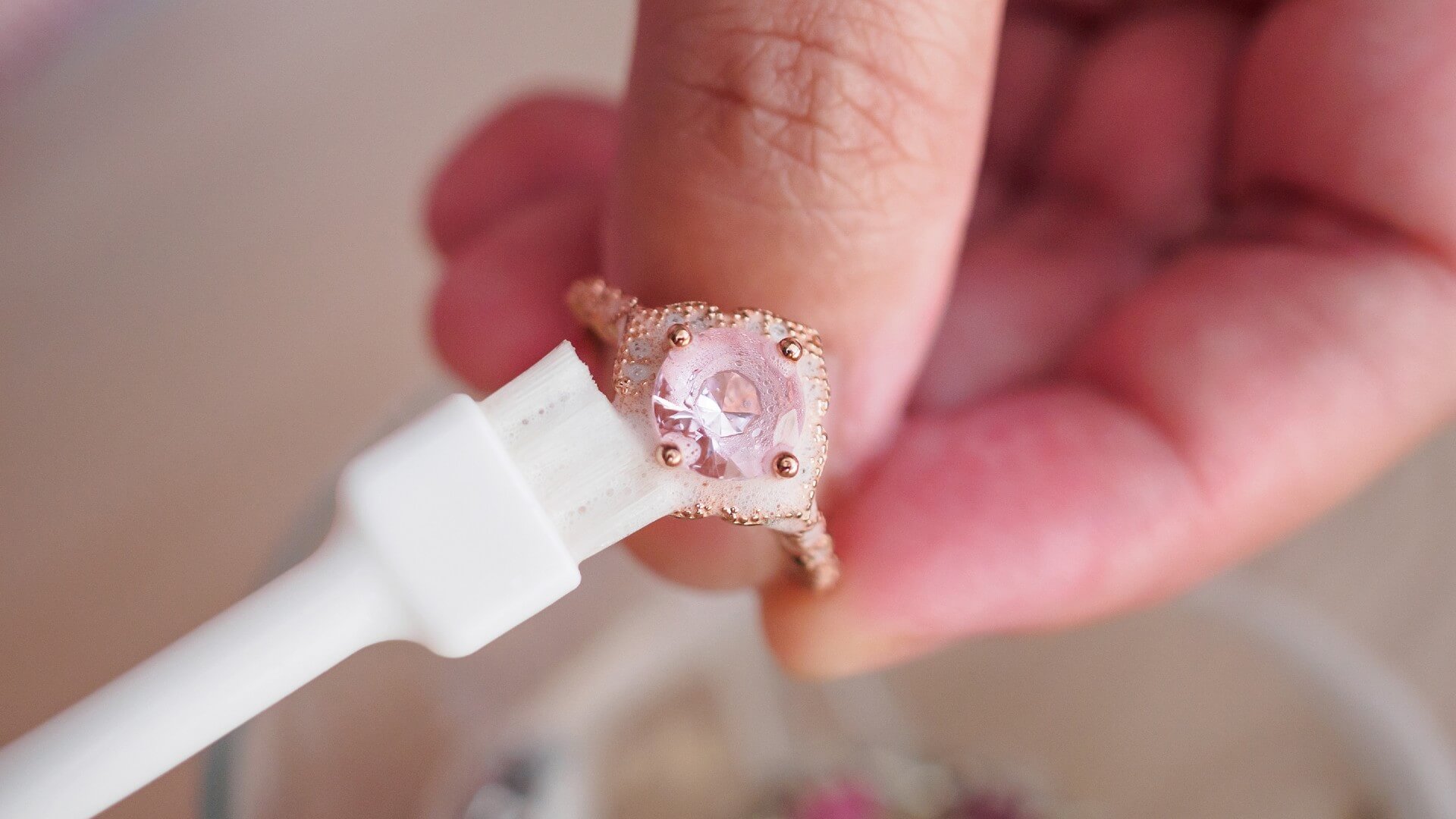
Engagement rings are serious business. They’re not only meaningful, but also expensive and usually delicate to boot. Many feel both dazzled by and intimidated by their new jewels. Should I wear my ring in the pool? What about at the beach? What’s the safest way to clean an engagement ring?
We’ll answer all of those questions — plus a few more. Learn how to transform your engagement ring from glum to glam.
What You’ll Need

Ready to clean your ring? Here’s what you’ll need to bring a twinkle back to your sparkler:
- A magnifying glass
- Warm water
- Non-moisturizing soap
- A soft toothbrush
- A soft cloth
Give Your Ring a Once-Over
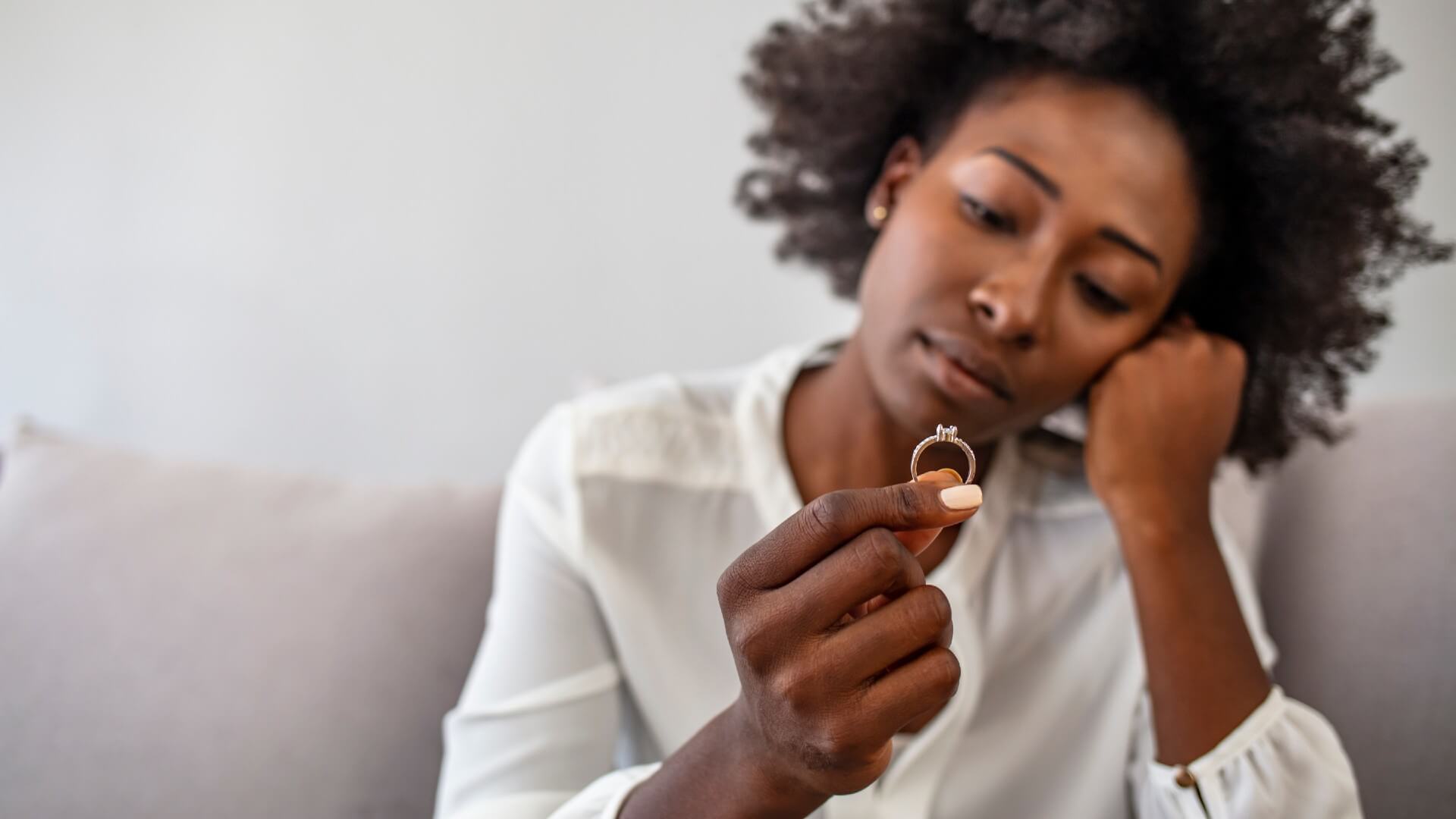
Before you begin cleaning, examine your ring to make sure everything is where it should be. Break out your magnifying glass and get up close and personal. Look for deep gouges in the metal, loose prongs in each setting and loose or missing stones. If you find serious problems, don’t proceed with the cleaning — instead, take your engagement ring to a jeweler to have it repaired and professionally polished.
Begin With Mild Soap
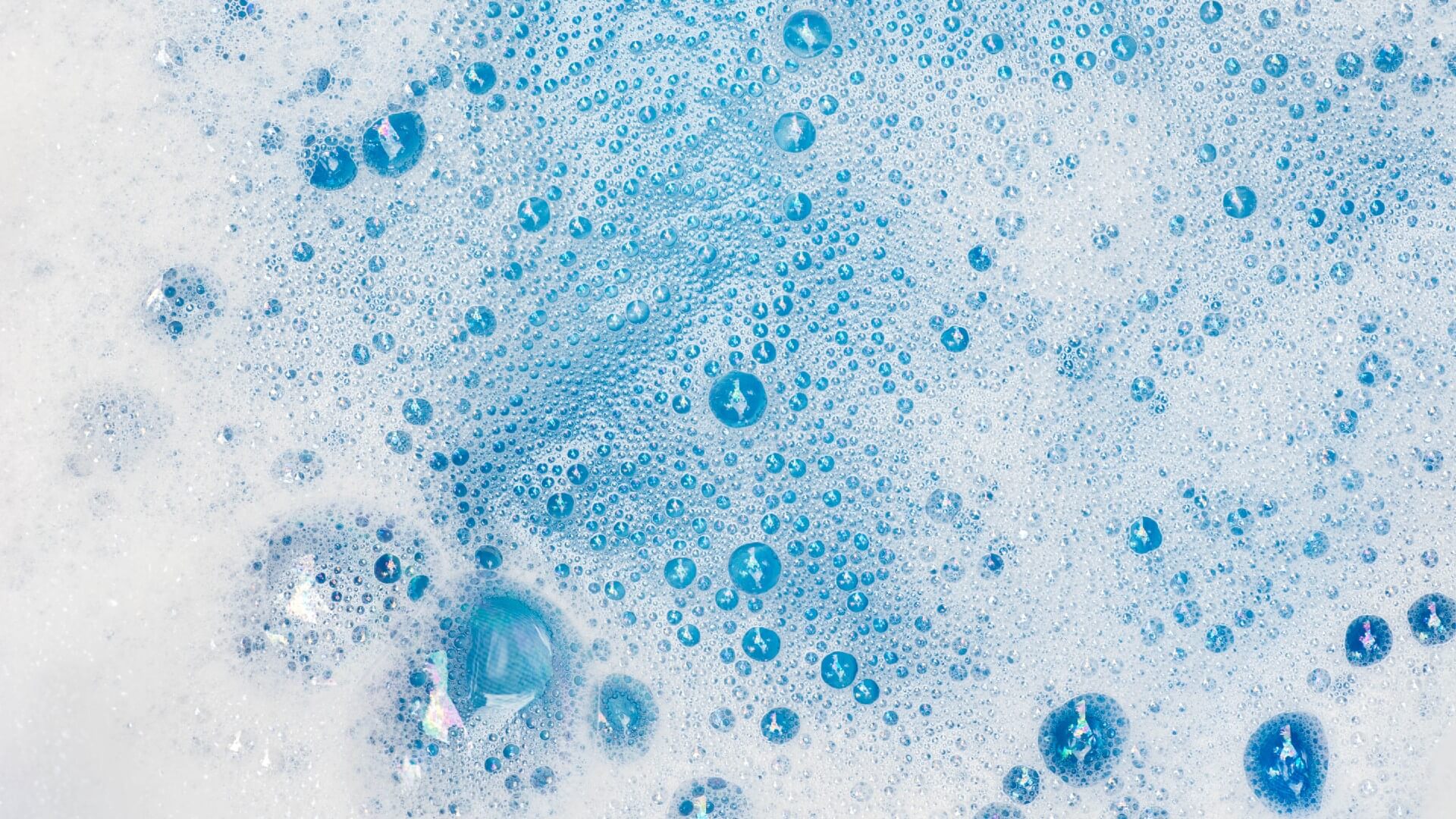
At-home cleaning really begins with a nice, warm bath. Fill a small container with hot water, add a little dish soap or shampoo and drop your ring into the bubbles. Let it soak for about half an hour, and then use your toothbrush to brush your setting and the jewels in it from every angle.
Hot Tip: Don’t forget to sweep out debris and dirt caught under your setting and pay special attention to the underside of your main stone. The cleaner your stone, the more it’ll sparkle.
Moisturizing soaps contain oils and other ingredients designed to lock moisture into your skin. Unfortunately, shea butter doesn’t have the same positive effect on jewelry. If you use moisturizing soap to clean your ring, you’ll find a greasy humectant film on the metal and on your stones.
Finish With a Soft Cloth
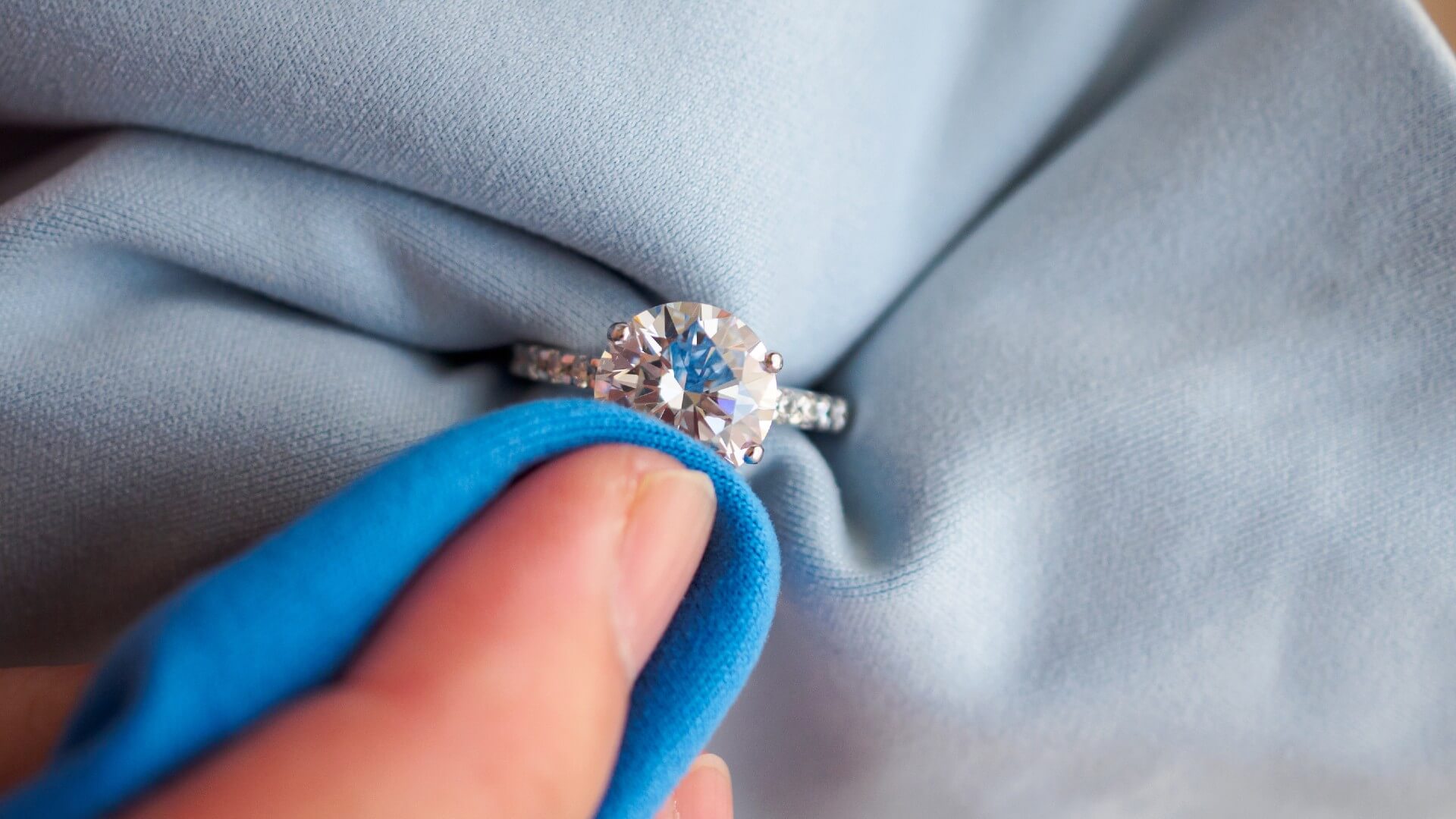
Don’t use a paper towel to dry your jewelry because paper towels can be abrasive. Instead, use a very soft cotton or microfiber cloth — or just let your ring air dry. If you have a polishing cloth, this is the time to use it. Don’t forget to store your polishing cloth in a sealed bag to keep it clean.
A Clever Trick for Sterling Silver
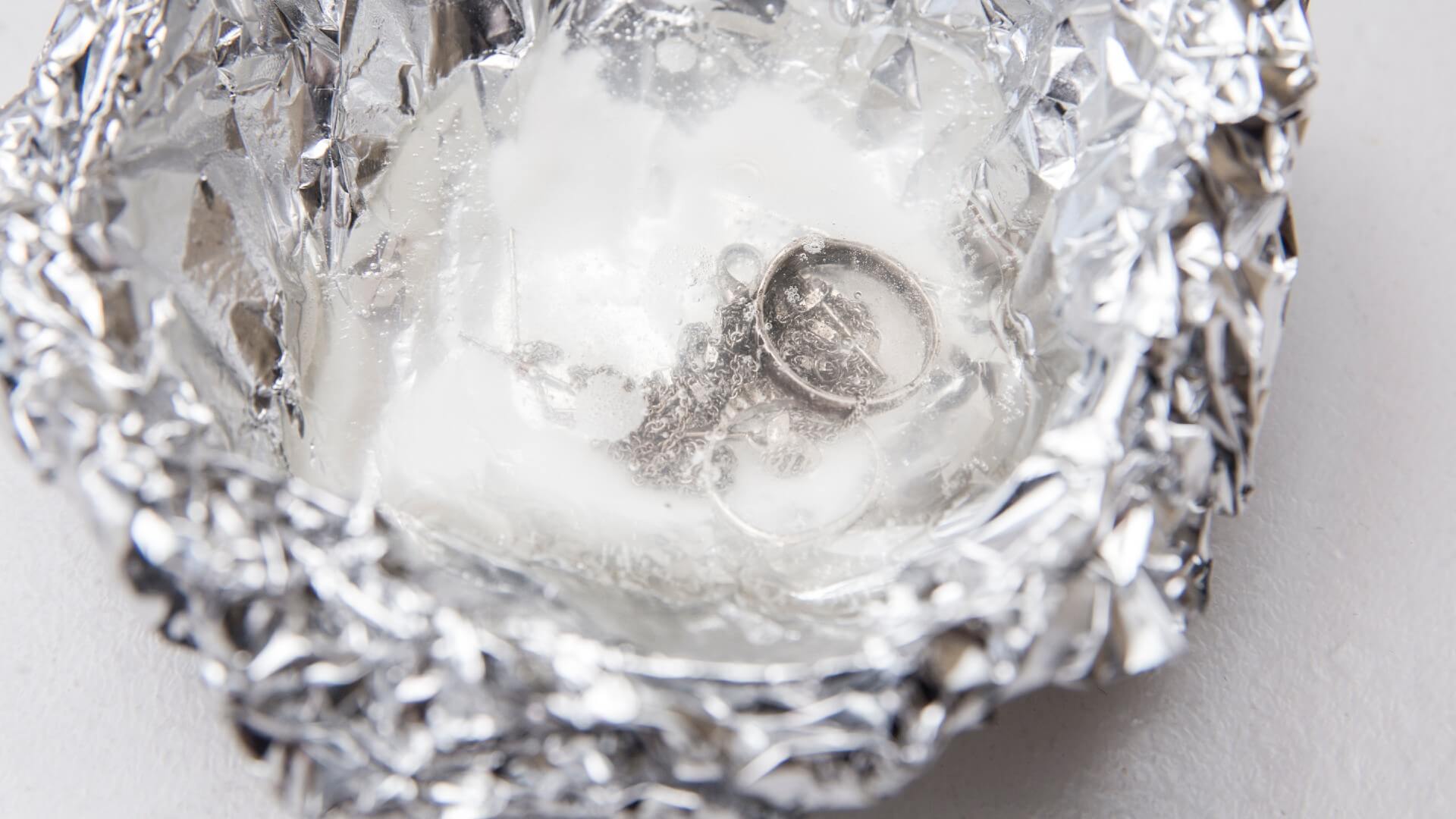
Silver engagement rings aren’t as common as gold, platinum or palladium rings, but they’re available nonetheless. If your silver setting is tarnished, follow the steps below to make it shine again. You’ll need aluminum foil, baking soda, boiling water, a spoon and a bowl.
- Line your bowl with aluminum foil
- Put three teaspoons of baking soda into the bottom of the lined bowl
- Pour boiling water into your bowl
- Immediately add your ring to the mixture
- Allow your ring to sit in the mixture for a maximum of two minutes
- Retrieve your ring with the spoon and rinse under warm water
- Pat dry and polish with a soft cloth
Important: Don’t use this cleaning tip if there are porous stones like pearls, emeralds or opals in your ring, or if you have an adhesive setting in your ring.
Common Cleaning Mistakes to Avoid
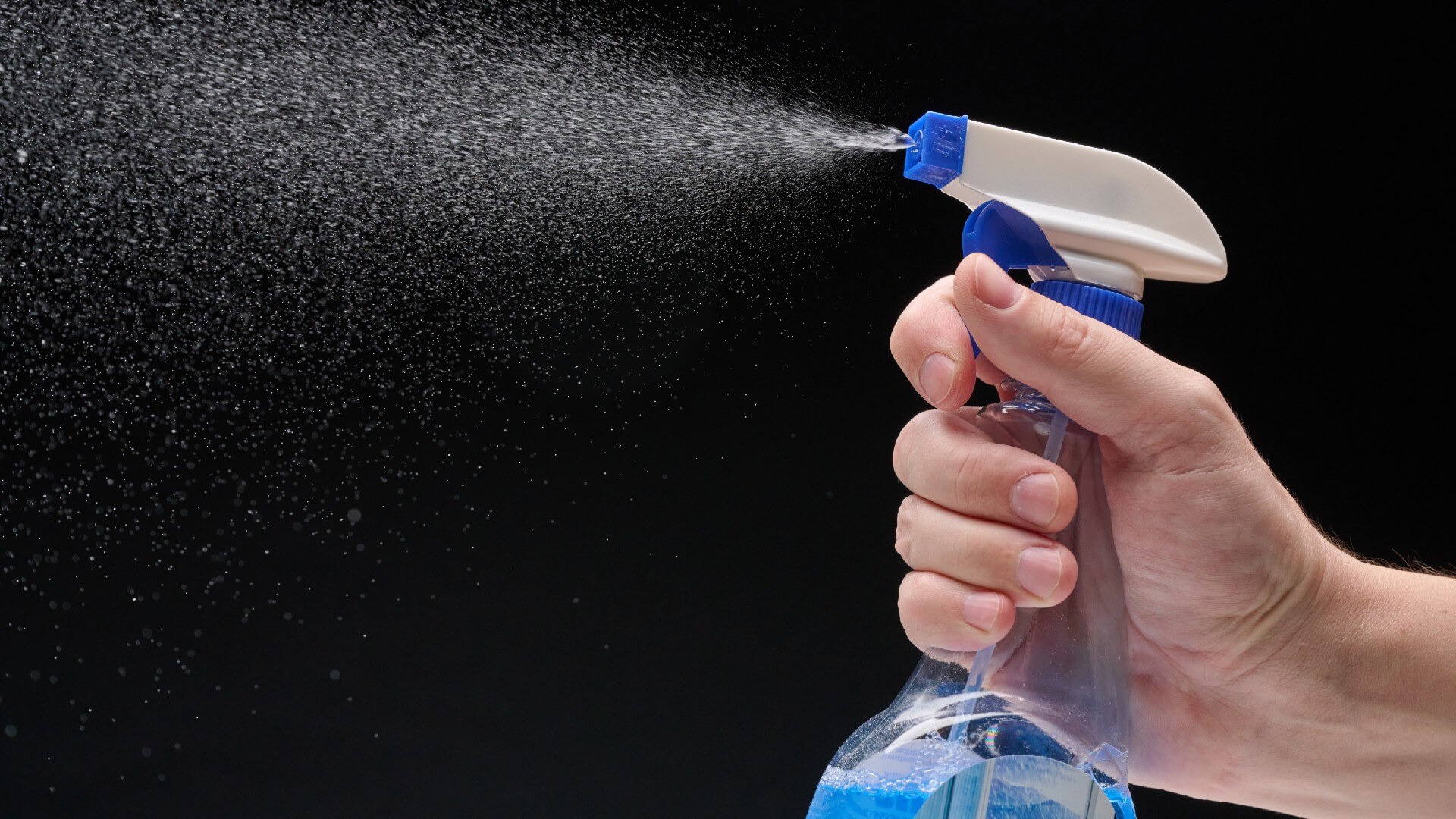
Mild soap brought back a little sparkle, so kitchen spray should really make your ring shine, right? Wrong!
Household cleaners can destroy jewelry, so don’t use them under any circumstances. Avoid the following chemicals:
- Bleach: Chlorine bleach won’t react with pure gold, but it will react with the metals in karat gold alloy. In layman’s terms, chlorine damages the alloy metal, causing stress corrosion. Delicate parts of your ring, like setting prongs, are most susceptible to stress corrosion.
- Acetone: Acetone — or any solvent — definitely shouldn’t be a part of your cleaning routine. Acetone can damage pearls, opals, emeralds and other porous stones, making it completely unsuitable for use as a ring cleaning agent.
- Abrasive pastes: Any abrasive household cleaner will damage metal — and the softer the metal, the more it’ll suffer. Stay away from all abrasives to keep the gleam on your gold, silver or platinum ring.
To recap, never soak your ring in bleach or in a bleach solution, stay away from solvents like acetone and don’t use abrasive pastes, which will dull the metal on your ring.
A Note About Platinum: Platinum is a remarkably unreactive metal, making it an excellent choice for engagement and wedding rings. It’s generally more expensive than gold, but it has a longer lifespan.
Ultrasonic Cleaners
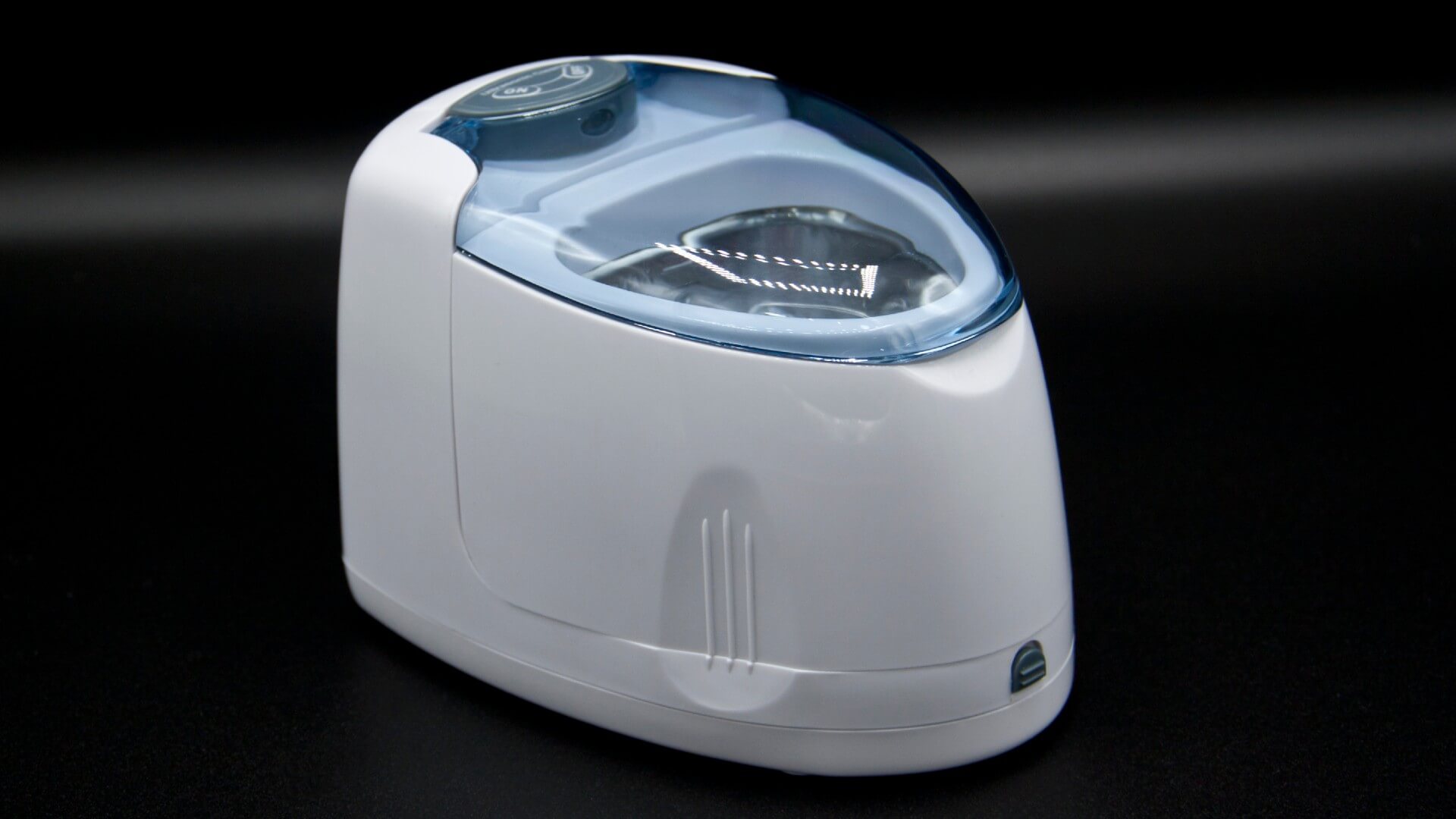
Ultrasonic cleaners sound like a good idea — and they work quite well under the right circumstances. However, we wouldn’t advise that you use an ultrasonic cleaner at home. Why? Because the cleaner’s vigorous vibrations could loosen the prongs on your ring setting — and if you don’t lose stones in the machine itself, they could fall out later on.
Some jewelers do use ultrasonic cleaners to help dislodge dirt — but they also have the tools to check settings and secure loose stones.
When to Seek Professional Cleaning Help
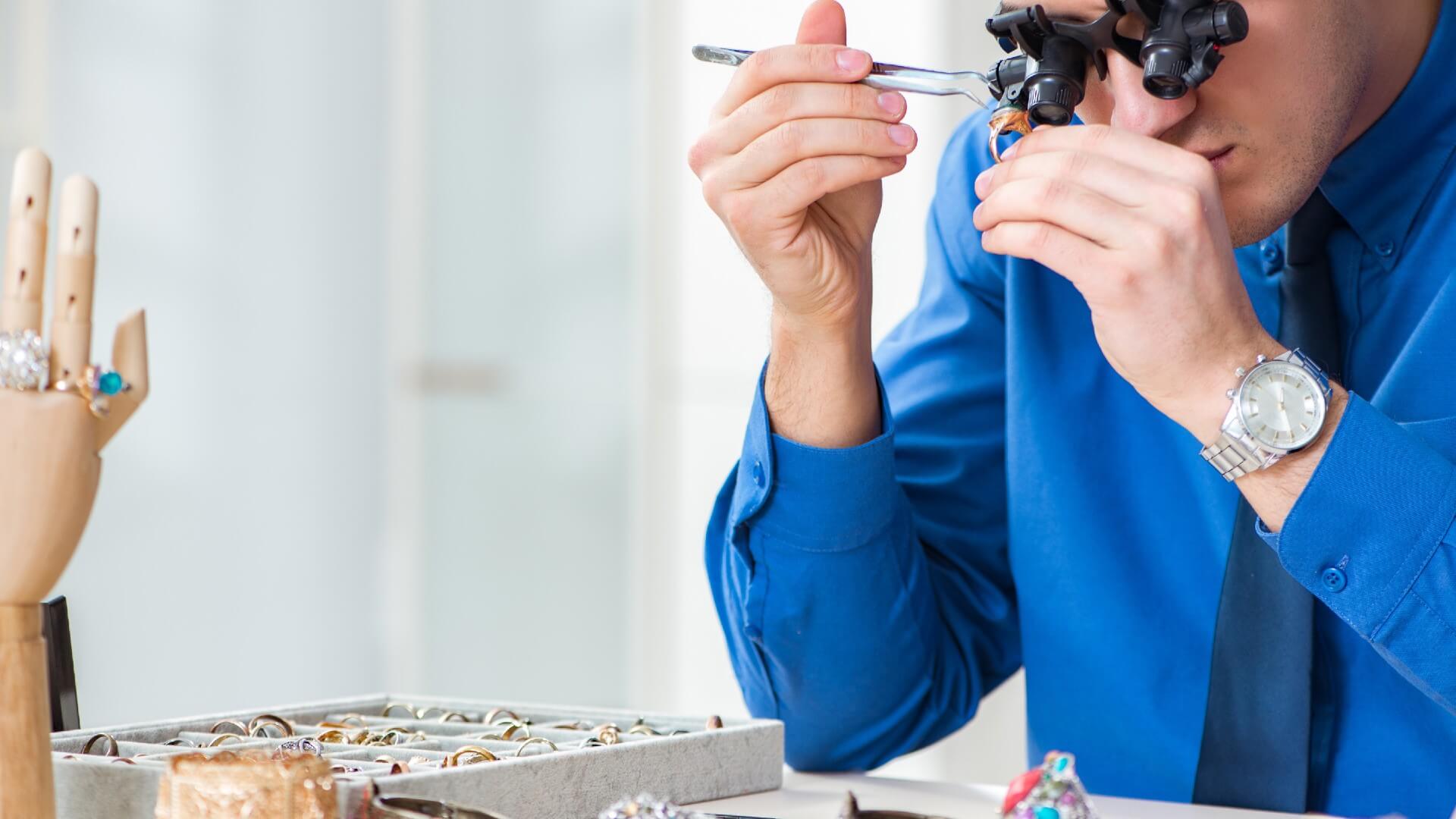
Sometimes the dirt on your ring is more than just oil buildup. Paint, superglue, resin and other hard-to-remove substances can make at-home cleaning much harder. If you’re not sure how to recover from a ring-related debacle, ask a trusted local jeweler to clean your ring professionally. Your jeweler will:
- Check your ring to ensure all stones are present and all settings are sound
- Place your ring into an ultrasonic bath, which will dislodge dirt particles
- Remove scratches and scuffs with a high-speed polishing wheel
- Use a high-pressure steam jet to shift any leftover dirt
Emeralds, opals and other porous stones don’t go into ultrasonic baths. Instead, they’re carefully cleaned by hand.
Keep Your Ring Sparkling

Want to keep the glimmer on your bling? To keep your ring shiny, remember to:
- Remove it before you swim: Chlorine in a freshwater pool and salt in the sea both damage alloy metals like copper, zinc and cobalt, which are used in karat gold.
- Remove it before you do DIY: Working with your hands? Take your engagement ring off to prevent scuffs and scratches.
- Schedule regular maintenance appointments: Take your ring to a well-regarded jeweler every six months to have its stones and settings checked — and tightened if necessary.
- Get white gold professionally cleaned: Most commonly made of gold alloyed with palladium and nickel, white gold has rhodium plating applied to it which occasionally needs retouching.
- Get insurance:Diamonds are tough, but they’re not invincible — and it is possible to chip them. To be on the safe side, consider buying engagement ring insurance.
The Ring Wrap
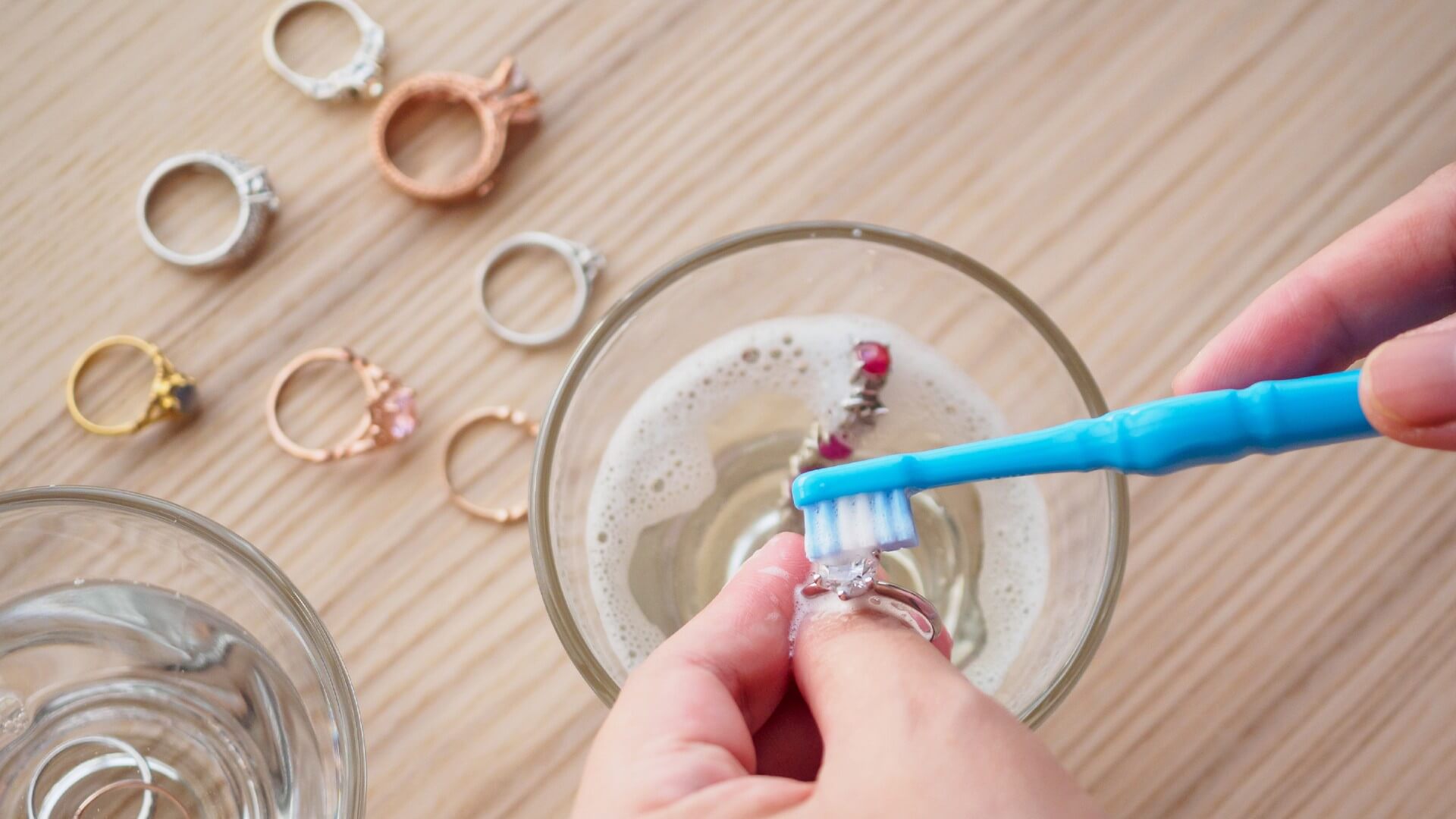
Engagement rings look much more enticing when they’re clean. To recap, soak your ring in a mild soap and warm water solution to loosen dirt, and then brush it from every angle with a soft toothbrush. Pay special attention to the underside of your main setting. Finally, buff dry with a cotton or microfiber cloth, and polish with a jewelry cloth.
To keep your ring looking grand, take it to a professional for deep cleaning every six months. Remember to remove your ring before heading to the pool, going to the beach or getting creative. With a little TLC, your ring should last you a lifetime.
Ready to make your engagement ring a real thing? Design a dazzling custom ring and wear your personality proudly on your finger, or shop our beautiful selection of preset diamond and gemstone engagement rings.

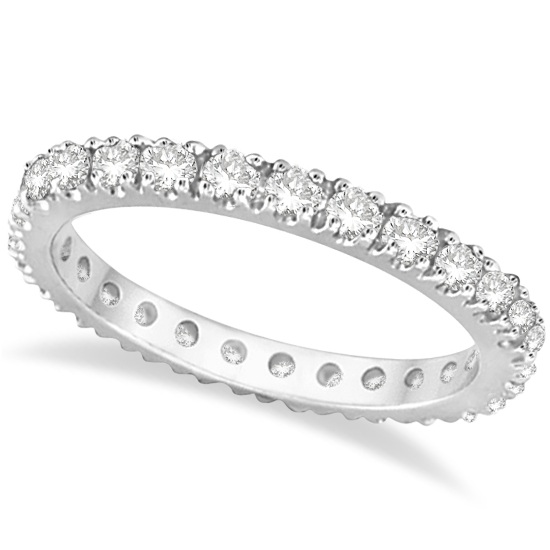
POST COMMENT